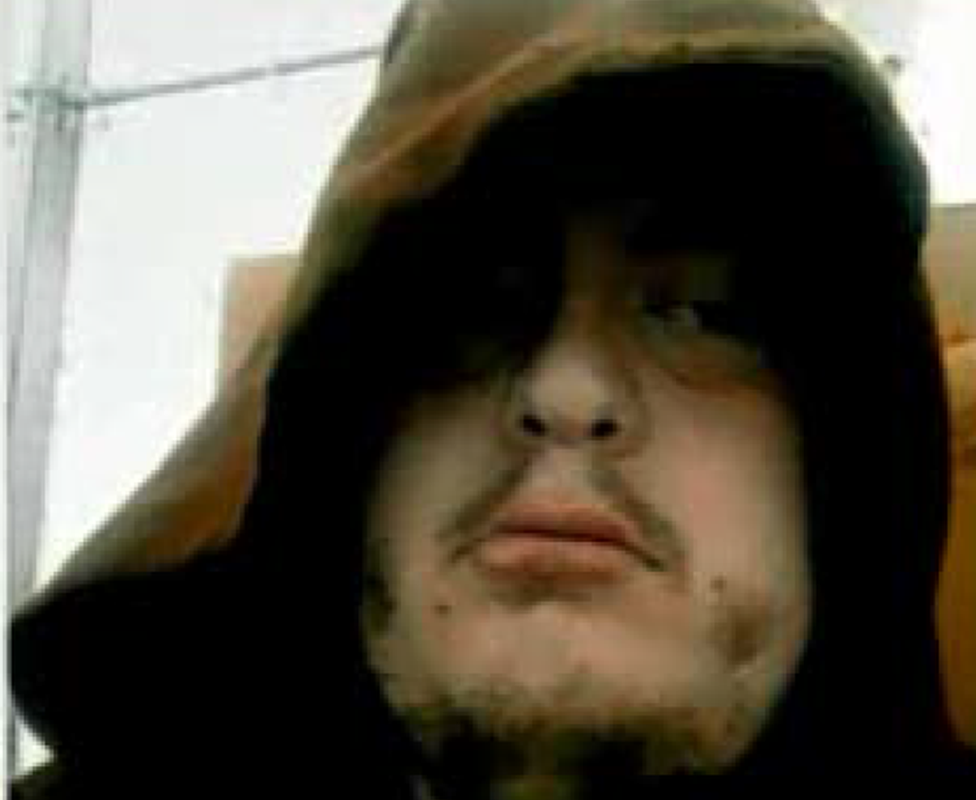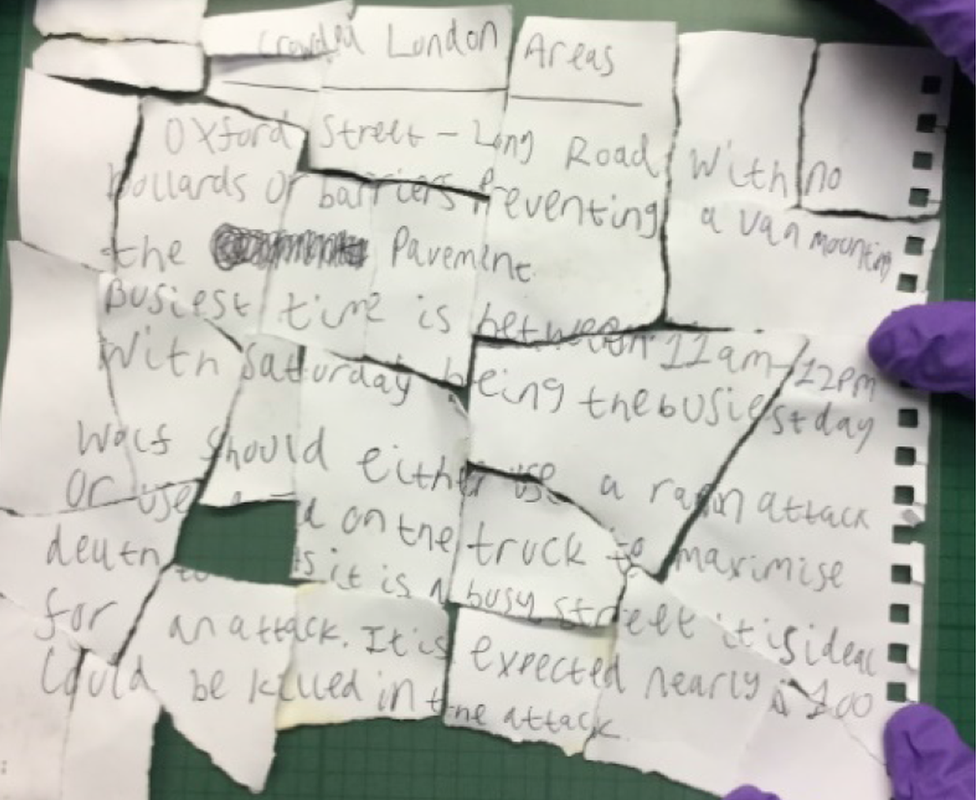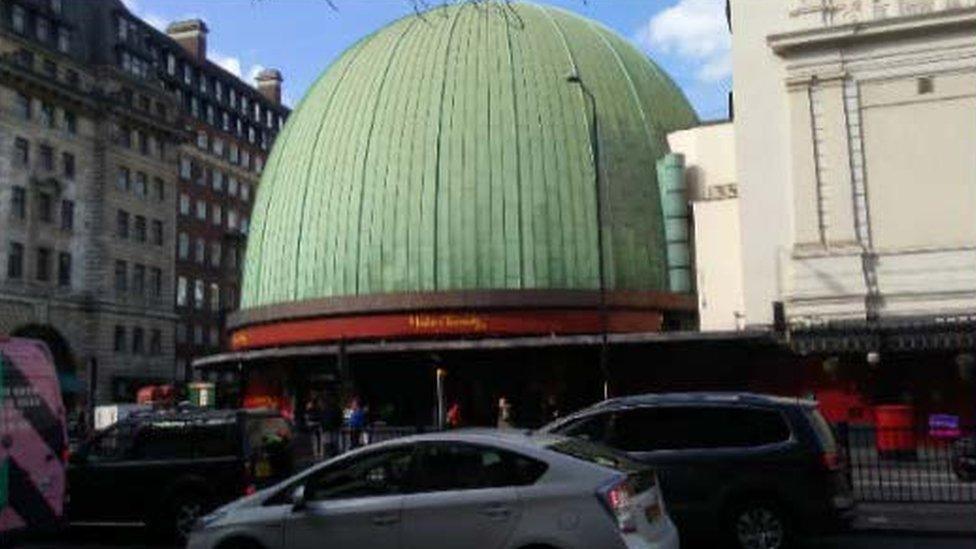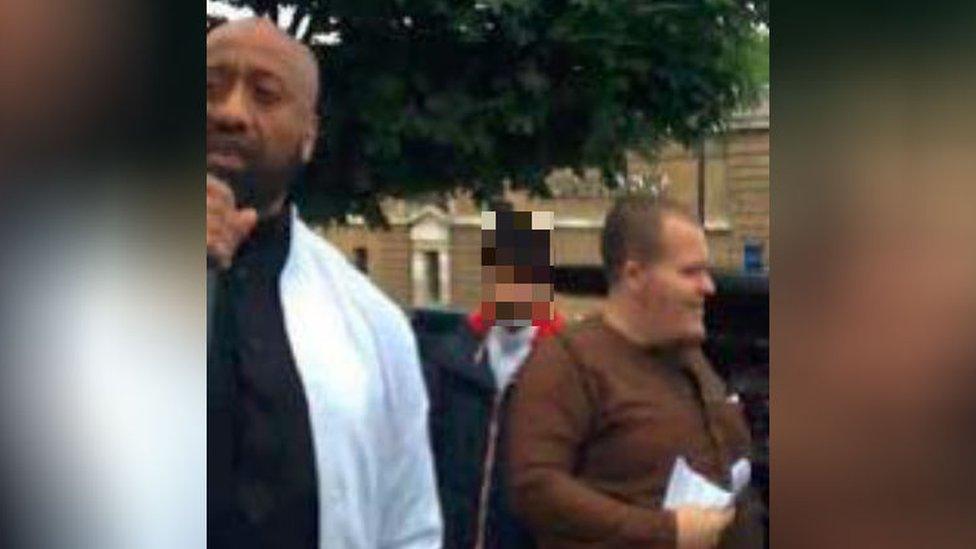Oxford Street terror attack plotter 'resisted' de-radicalisation
- Published

Lewis Ludlow hoped to kill 100 people
A man who planned to drive a van into 100 people in London was working with a government de-radicalisation programme at the time, a court has heard.
Islamic State (IS) supporter Lewis Ludlow pleaded guilty last August to planning the Oxford Street attack and raising money for terrorism.
But a sentencing hearing at the Old Bailey has now heard he was engaging with the Prevent programme at the time.
Ludlow, from Rochester, Kent, told a contact: "They think I'm stupid."
The former Royal Mail worker, a Muslim convert, has also used the name Ali Hussain.
A phone, found in a storm drain near his home, contained images of "hostile reconnaissance" carried out at London landmarks, prosecutors said.
He was put under 24-hour police surveillance and then arrested in April.
The first of several attempts to engage Ludlow with Prevent had come in 2008 after he had been found carrying a knife at college, the court heard.

Ludlow swore allegiance to Islamic State
Ludlow, an associate of the convicted terrorist Anjem Choudhary, consistently refused to engage until late 2017 and early 2018 when he met an assigned mentor 17 times.
Prosecutor Mark Heywood QC said an undercover police officer had observed Ludlow telling a contact: "I have been exaggerating my depression and they think I'm stupid. I'm naive but not stupid or mad."
In messages with the contact, recovered by police, Ludlow wrote: "I resisted the same programme twice in the past."
The woman had advised him to "be polite with them," adding: "Even if u dont believe it, fake it."
Ludlow, by then under intensive surveillance, replied: "Yes."

Analysis: The Prevent strategy
Daniel De Simone, BBC News Home Affairs
The government's controversial Prevent strategy is intended to stop people becoming involved in extremism or terrorist activity.
Unlike its Desistance and Disengagement strand, which can be mandatory and is aimed at people already convicted of terror offences or returning from conflict zones, other parts of it are voluntary for adults and cannot be forced on those identified as needing support.
Ahmed Hassan, the Parsons Green bomber, is one of several extremists who have notionally engaged with Prevent, while carrying on regardless.
The details of Ludlow's meetings with his Prevent mentor are confidential and were not set out in court.
However, it's understood that some involved in his case thought he was engaged in a sincere attempt at change.
Those who were already investigating him had a different view.
Attempts were made to involve Ludlow in Prevent over a decade, but if someone does not want to honestly de-radicalise they cannot be compelled.

During the hearing, Ludlow took to the witness box.
Evidence was being heard despite Ludlow's guilty pleas because there are still unresolved issues between the prosecution and defence ahead of sentencing.
Asked by defence barrister Rebecca Trowler QC why he had said "yes" to a suggestion from the contact about faking engagement with Prevent, Ludlow said: "I just thought that's her advice and I'll take it. I just didn't want any hassle."
'Nothing but trouble'
Ludlow, who converted to Islam aged 16, said he had felt harassed by MI5 and Prevent, which is why he planned to move to the Philippines early last year.
He told the court he first met Islamic extremist Anjem Choudhary and the now banned group al-Muhajiroun in 2010, adding that at first "they seemed very nice" before "things went sour".
Ludlow said he fully disengaged from the group in 2016 after concluding "this is giving me nothing but trouble".
Ms Trowler said Ludlow was "a vulnerable man" because of his mental health difficulties, his autism and associated depression.
She said he was acting under the directions from the senior extremist in the Philippines and that his attack preparations were "embryonic, of low value, and highly unlikely to come to fruition".

Ludlow made detailed notes of possible targets in London
Police discovered he was communicating with a leading extremist in the Philippines, planning a multiple casualty vehicle attack in central London, and scouting targets such as the Disney Store on Oxford Street, the court had heard earlier.
In a torn-up note recovered from a bin hear his home, Ludlow wrote "it is a busy street it is ideal for an attack. It is expected nearly 100 could be killed."
Mr Heywood said images taken by Ludlow of various London landmarks were "an exercise in reconnaissance" to identify locations to carry out "possible attacks against civilians".

Ludlow carried out "hostile reconnaissance" at landmarks including Madame Tussauds
In January 2018, Ludlow bought a ticket to fly to the Philippines but he was stopped at the airport and his passport was seized.
He claimed he was going to the country as a sex tourist but was found to have been in communication with a man named Abu Yaqeen in an area with a significant IS presence.
In March, Ludlow sent him money via PayPal and created the Facebook account Antique Collections, which he was alleged to have used as a front to send money to south-east Asia for terrorism.
The Old Bailey heard he filmed himself pleading allegiance to IS and stated: "I spit on your citizenship, your passport, you can go to hell with that."

Ludlow was filmed in the company of Islamic extremist Trevor Brooks

Ludlow called himself "The Ghost"

The court was also shown images of Ludlow at public events with prominent Islamic extremists Anjem Choudary and Trevor Brooks.
The hearing, which is expected to last three days, continues.
- Published10 August 2018

- Published1 May 2018
